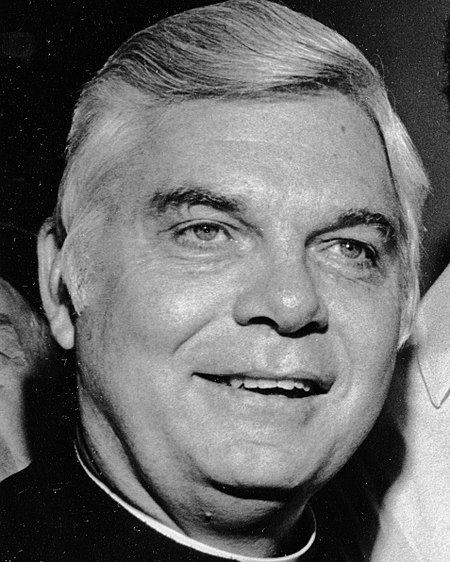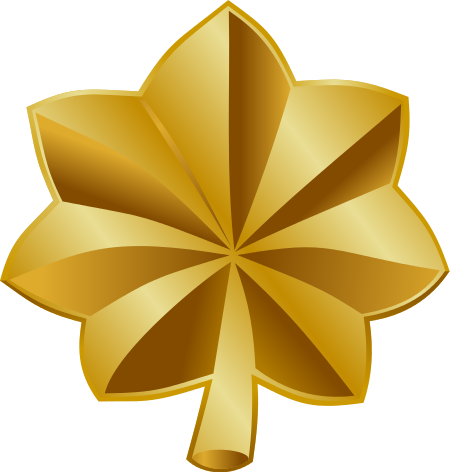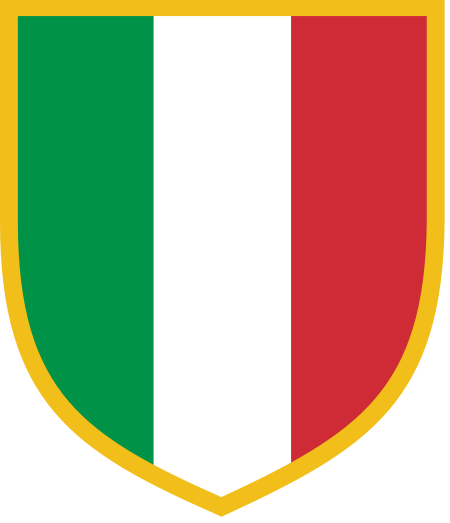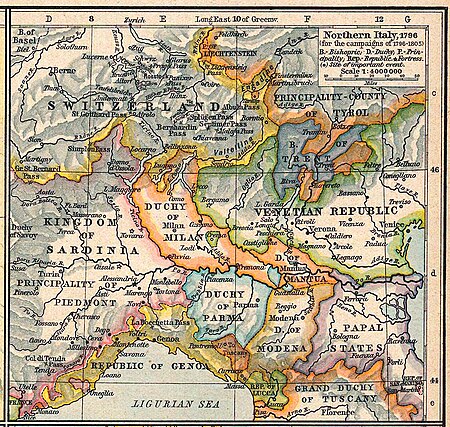Battle of Püchen
| |||||||||||||||||||||||||
Read other articles:

Bacardi LimitedJenisSwastaIndustriMinumanDidirikan4 Februari 1862Santiago de CubaPendiriDon Facundo Bacardí MassóKantorpusatHamilton, BermudaTokohkunciFacundo L. Bacardi (Chairman)Mahesh Madhavan (CEO)ProdukBacardi rum, Grey Goose vodka, Patrón Tequila, Dewar's Blended Scotch whisky, Bombay Sapphire gin, Martini & Rossi vermouth and sparkling wines, Eristoff vodka, Cazadores blue agave tequila, Angel's Envy Bourbon and moreSitus webbacardilimited.com Bacardi Limited adalah salah satu peru…

Didier Drogba Drogba pada tahun 2019Informasi pribadiNama lengkap Didier Yves Drogba Tébily[1]Tanggal lahir 11 Maret 1978 (umur 45)[2]Tempat lahir Abidjan, Pantai GadingTinggi 1,88 m (6 ft 2 in)[3]Posisi bermain PenyerangKarier junior Dunkerque1988–1989 Tourcoing[4]1989–1991 Abbeville1991–1993 Vannes1993–1997 Levallois1997–1998 Le MansKarier senior*Tahun Tim Tampil (Gol)1998–2002 Le Mans 64 (12)2002–2003 Guingamp 45 (20)2003–20…

Stone Cold Steve Austin Stone Cold Steve Austin in 2010 tijdens de San Diego Comic-Con Persoonlijke informatie Geboortenaam Steven James Anderson Volledige naam Steve Williams Nationaliteit Verenigde Staten Geboorteplaats Austin Geboortedatum 18 december 1964 Lengte 1,88 m Gewicht 115 kg Carrière Debuut 8 december 1989 Met pensioen 30 maart 2003 Ringnaam The RingmasterStunning Steve AustinThe RattlesnakeStone Cold Steve Austin Trainer/coach Chris AdamsLewis Pearce Overige beroep(en) profe…

Gifu 岐阜市KotaNegaraJepangWilayahChūbu, TōkaiPrefekturPrefektur GifuPemerintahan • Wali KotaShigemitsu HosoeLuas • Total202,89 km2 (78,34 sq mi)Populasi • Total422,061 • Kepadatan2.086/km2 (5,400/sq mi)Lambang • PohonCastanopsis cuspidata • BungaSalvia splendensZona waktuUTC+9 (JST)Situs webKota Gifu Gifu (岐阜市code: ja is deprecated , Gifu-shi) adalah kota di Jepang yang terletak di bagian teng…

Bernard Francis LawKardinal, Imam Agung Emeritus Basilika di Santa Maria Maggiore Uskup Agung Emeritus BostonKeuskupan agungBostonPenunjukan11 Januari 1984Awal masa jabatan23 Maret 1984Masa jabatan berakhir13 Desember 2002PendahuluHumberto Sousa MedeirosPenerusSeán Patrick O'MalleyJabatan lainKardinal-Imam Santa SusannaImamatTahbisan imam21 Mei 1961oleh Egidio VagnozziTahbisan uskup5 Desember 1973oleh Joseph Bernard Brunini, William Wakefield Baum, dan Joseph BernardinPelantikan kardi…

Artikel ini tidak memiliki referensi atau sumber tepercaya sehingga isinya tidak bisa dipastikan. Tolong bantu perbaiki artikel ini dengan menambahkan referensi yang layak. Tulisan tanpa sumber dapat dipertanyakan dan dihapus sewaktu-waktu.Cari sumber: Ajudan Presiden Indonesia – berita · surat kabar · buku · cendekiawan · JSTOR Ajudan Presiden Indonesia bertugas melaksanakan pengamanan secara fisik terhadap keselamatan Presiden Indonesia, Wakil Presiden …

Komedi bersih adalah genre komedi yang umumnya bebas dari kata-kata kasar: rasisme, lelucon seksual, kata-kata yang merendahkan, kata-kata kotor, kecabulan, inses, obat-obatan terlarang, humor yang tidak senonoh, humor toilet, konten seksual yang eksplisit, dan materi yang tidak pantas serupa.[1][2][3][4] Komedian mungkin mencoba menghindari pembatasan komedi bersih dengan menggunakan sindiran, eufemisme, ucapan ganda, maksud ganda, dan bahasa yang netral gender. …

Peta Persebaran Bahasa Arab sebagai satu-satunya bahasa resmi (warna hijau).Bahasa Arab sebagai bahasa resmi utama/bahasa co-offisial (warna biru gelap) serta Bahasa Arab sebagai bahasa resmi tambahan (warna biru cerah). Berikut ini adalah daftar negara di kawasan Asia Barat dan Afrika Utara yang menuturkan bahasa Arab secara resmi.[1] Negara-negara dengan bahasa Arab sebagai bahasa resmi Negara Populasi Aljazair 41.700.000 Arab Saudi 30.770.375 Bahrain 1.343.000 …

У этого термина существуют и другие значения, см. Клиновидные кости (стопа). Клиновидная кость Каталоги MeSHMeSHGray?FMATA98 Медиафайлы на Викискладе Клинови́дная кость (основна́я кость) (лат. os sphenoidale) — непарная кость, образующая центральный отдел основания черепа. Состои�…

Thomas Willis. Thomas Willis (27 Januari 1621 – 11 November 1675) adalah seorang dokter dari Inggris. Ia berperan penting dalam sejarah ilmu anatomi, neurologi, dan psikiatri. Selain itu, Willis juga merupakan salah satu anggota yang mendirikan Royal Society. Kategori;Anggota Royal Society Artikel bertopik biografi tokoh ini adalah sebuah rintisan. Anda dapat membantu Wikipedia dengan mengembangkannya.lbs

artikel ini perlu dirapikan agar memenuhi standar Wikipedia. Tidak ada alasan yang diberikan. Silakan kembangkan artikel ini semampu Anda. Merapikan artikel dapat dilakukan dengan wikifikasi atau membagi artikel ke paragraf-paragraf. Jika sudah dirapikan, silakan hapus templat ini. (Pelajari cara dan kapan saatnya untuk menghapus pesan templat ini) Albert BanduraLahir(1925-12-04)4 Desember 1925Mundare, Alberta, KanadaMeninggal26 Juli 2021(2021-07-26) (umur 95)Stanford, California, Amerika S…

Control mode for AC power generators Droop speed control is a control mode used for AC electrical power generators, whereby the power output of a generator reduces as the line frequency increases. It is commonly used as the speed control mode of the governor of a prime mover driving a synchronous generator connected to an electrical grid. It works by controlling the rate of power produced by the prime mover according to the grid frequency. With droop speed control, when the grid is operating at …

CréteilNegaraPrancisArondisemenCréteilKantonIbukota 3 kantonAntarkomuneCommunauté d'agglomération Plaine Centrale du Val-de-MarneKode INSEE/pos94028 (ex 75028) 94028 (ex 75028) / Gereja Saint-Christophe, di komune Créteil. Créteil merupakan sebuah komune di pinggiran tenggara Paris, Prancis. Terletak 11.5 km (7.1 mil) dari pusat kota Paris. Créteil adalah préfecture (ibu kota dari département Val-de-Marne, juga ibu kota Arondisemen Créteil. Kota ini, lainnya, adalah ibu kota…

American politician Joseph Habersham6th United States Postmaster GeneralIn officeFebruary 25, 1795 – November 28, 1801PresidentGeorge WashingtonJohn AdamsThomas JeffersonPreceded byTimothy PickeringSucceeded byGideon GrangerSpeaker of theGeorgia House of RepresentativesIn office1782 2nd Adjournment - 1782 3rd Adjournment17853rd Mayor of Savannah, GeorgiaIn office17921793 Personal detailsBorn(1751-07-28)July 28, 1751Savannah, Georgia, British AmericaDiedNovember 17, 1815(1815-11-17…

Video game played on a mobile device This article has multiple issues. Please help improve it or discuss these issues on the talk page. (Learn how and when to remove these template messages) This article needs additional citations for verification. Please help improve this article by adding citations to reliable sources. Unsourced material may be challenged and removed.Find sources: Mobile game – news · newspapers · books · scholar · JSTOR (December 2008)…

Final Piala Liga Inggris 1961TurnamenPiala Liga Inggris 1960–1961 Aston Villa Rotherham United 3 2 Pertandingan pertama Aston Villa Rotherham United 0 2 Tanggal22 Agustus 1961StadionMillmoor, RotherhamWasitK. A. Collinge (Hale)Penonton12.226Pertandingan kedua Rotherham United Aston Villa 3 0 setelah perpanjangan waktuTanggal5 September 1961StadionVilla Park, BirminghamWasitC. W. Kingston (Newport)Penonton31.3021962 → Final Piala Liga Inggris 1961 adalah pertandingan final pertama dari tu…

Voce principale: Robur Siena Società Sportiva Dilettantistica. AC SienaStagione 2012-2013Sport calcio Squadra Siena Allenatore Serse Cosmi[1] Giuseppe Iachini[2] All. in seconda Mario Palazzi[1] Giuseppe Carillo[2] Presidente Massimo Mezzaroma Serie A19º (retrocesso in Serie B) Coppa ItaliaOttavi di finale Maggiori presenzeCampionato: Pegolo (38)Totale: Pegolo (39) Miglior marcatoreCampionato: Emeghara (7)Totale: Emeghara (7) StadioArtemio Franchi Montepasc…

Conurbation in Ontario, CanadaGreater Toronto and Hamilton AreaConurbationDowntown TorontoNickname: GTHACountry CanadaProvince OntarioArea • Total8,244.42 km2 (3,183.19 sq mi)Population (2021) • Total7,281,694 • Density844/km2 (2,216/sq mi) Combined population of the cities of Toronto and Hamilton and the regional municipalities of Halton, Peel, York, and DurhamGDP • TotalCA$479.758 billionUS$361.64…

Lithographie : Giuseppe Boldrini, le peintre Boldrini, Angelo Giacomelli, Antonio Lazzati, et Francesco Montanari en prison à Mantoue en 1853 (Musée du Risorgimento à Milan) Les martyrs de Belfiore (la vallée de Belfiore est située au sud de la ville de Mantoue) est un épisode douloureux du Risorgimento italien connu pour sa série de condamnations à mort par pendaison exigées par le maréchal (Field-marshall) autrichien Joseph Radetzky, gouverneur général de Lombardie et de Vén�…

This article is about Southampton players with fewer than 25 appearances. For Southampton players with between 25 and 99 appearances, see List of Southampton F.C. players (25–99 appearances). For Southampton players with more than 100 appearances, see List of Southampton F.C. players. Sammy Lee made three appearances for Southampton in 1990, and later held a coaching position at the club. Southampton Football Club is an English association football club based in Southampton, Hampshire. Founded…

